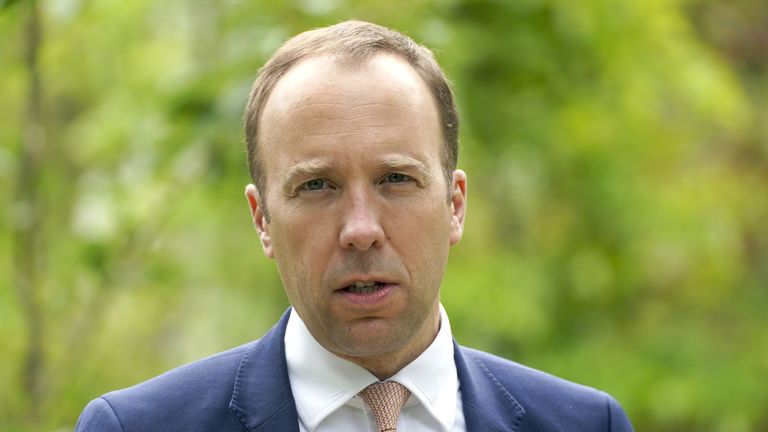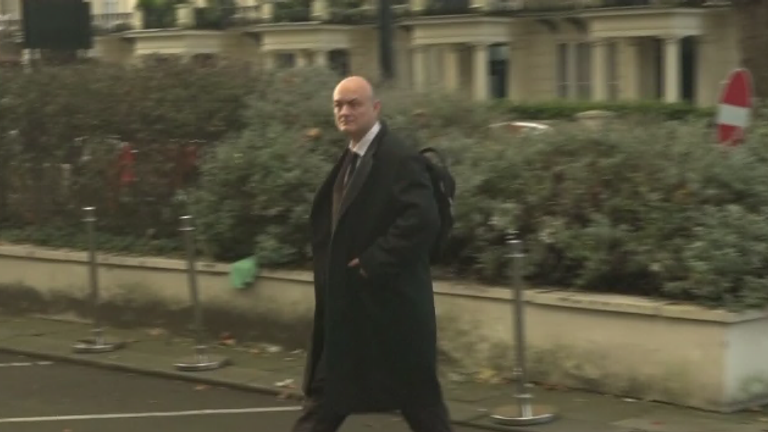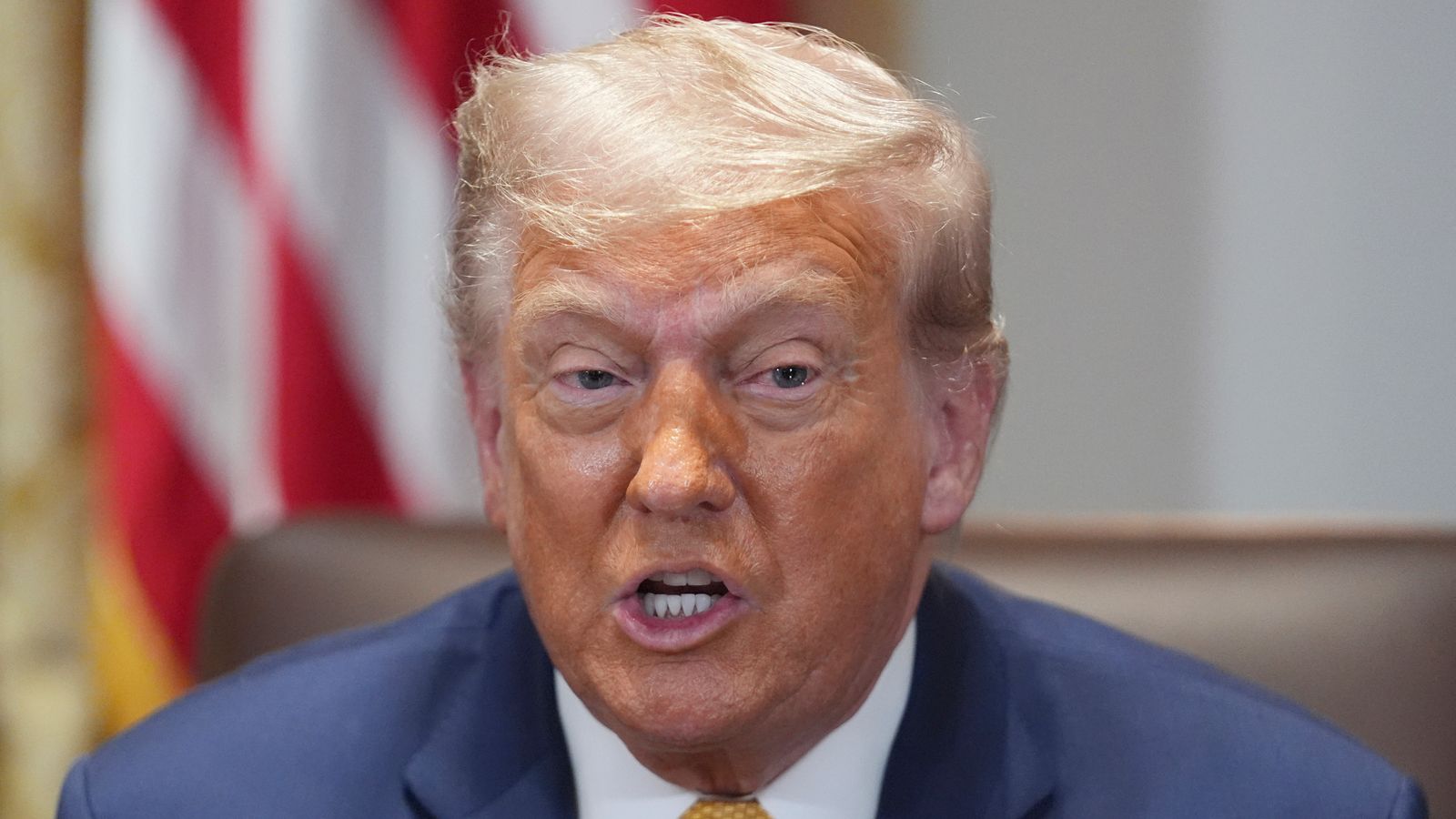
Ever since Matt Hancock was forced to resign for kissing his closest aide, Gina Coladangelo, in his office – in breach of his own COVID guidelines – the former health secretary has been trying to defend his record.
The now ex-cabinet minister appeared on I’m A Celebrity Get Me Out Of Here as he sought to rehabilitate his reputation with the public and defend his handling of the pandemic.
He wrote a book, The Pandemic Diaries, that offered his version of events ahead of the official COVID inquiry, and he gave countless interviews defending his actions, be it around the protection – or lack thereof – of care homes, the pandemic plan, or his handling of government PPE contracts.
Politics live: Hunt hails Darling as ‘one of the great chancellors’
Given all of that, I didn’t really expect Mr Hancock to turn up at the official inquiry today and offer some retrospection of what he got wrong, as well as where he thought he was right.
With utter predictability, the former health secretary sought to cast himself as the man who single-handedly tried to wake up a sluggish Whitehall machine to the threat, and who was thwarted by the “toxic culture” in Number 10 and government that prevented him from slowing down the spread of the virus.
This wasn’t so much self-reflection, but self-protection. In his version of events, Mr Hancock was never part of the problem, but always trying to find the solution.
That, of course, is not how other former aides and officials recall what happened during the pandemic.
Former deputy cabinet secretary Helen MacNamara told the inquiry Mr Hancock displayed “nuclear levels” of overconfidence, and that he regularly told colleagues in Number 10 things that “they later discovered weren’t true”.
Boris Johnson’s top adviser, Dominic Cummings, said he was a “proven liar” and “unfit for the job”.
The government’s chief scientific adviser, Sir Patrick Vallance, told the inquiry Mr Hancock had a “habit” of saying things that weren’t true, while the former cabinet secretary Lord Sedwill told his hearing he would have to “double-check” things to make sure the then-health secretary “wasn’t over-promising”.
To all those accusations of lying, Mr Hancock told inquiry barrister Hugo Keith simply that he had not lied and there was “no evidence from anybody who I worked with in the department or the health system who supported those false allegations”.
In other words, it was “them” – Number 10 and the Cabinet Office – versus “us” – Mr Hancock and his health department team.
But trying to cast these claims and counterclaims as a feature of turf wars between different government factions wasn’t so easy on Thursday as Mr Hancock brought another to the inquiry that wasn’t backed up by any evidence.
He claimed he told Mr Johnson a lockdown was necessary on 13 March 2020 – 10 days before the country was shut down.
Mr Cummings immediately tweeted that Mr Hancock was “flat out lying” and had been pushing the herd immunity plan at the time, rather than a lockdown.
The inquiry barrister also questioned the claim, noting Mr Hancock had made no such entry in his book, and there was no written evidence in the thousands of pieces of documentation acquired by the inquiry to back up his versions of events.
Click to subscribe to the Sky News Daily wherever you get your podcasts
In fact, he pointed out that when Mr Hancock sent WhatsApps to the prime minister on the 13 and 14 March there, was nothing about an immediate lockdown mentioned at all.
When he walked into the inquiry this morning, Mr Hancock was asked by the crowd outside whether “he lied his way through this pandemic”.
And what we heard from the former health secretary today was a version of events at odds with other testimony.
He went into defend his record, but it is hard to see that he came out changing many minds.














